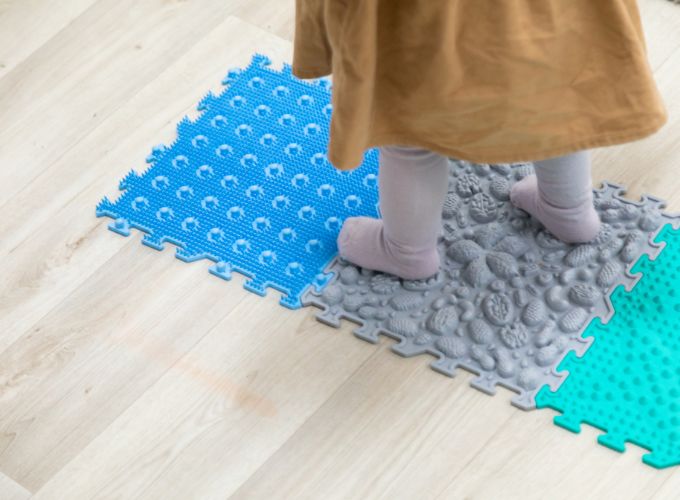What is Dyspraxia / Developmental Coordination Disorder (DCD)?
Dyspraxia, also known as Developmental Coordination Disorder (DCD), is a diagnosis typically made by a pediatrician, often informed by specialist assessments from an occupational therapist. This condition is characterized by difficulties in motor coordination, which can affect a child’s ability to perform everyday activities such as movement, sports, and dressing. Children with Dyspraxia have challenges in processing information, resulting in difficulty planning and executing movements in a smooth, coordinated manner.
Schedule an appointment with one of our Occupational Therapists today to discover how we can help you.
How to Identify Dyspraxia / DCD in Your Child
Children with DCD or Dyspraxia may appear clumsy or uncoordinated compared to their peers, and often struggle with motor tasks. Common indicators include:
- Slow development of skills needed to manage different food textures, preferring soft or easily meltable foods
- Delays in self-care skills like dressing, grooming, and hygiene
- Difficulty using cutlery, drinking from an open cup, or using a straw
- Frequent dropping or breaking objects due to poor fine motor control
- Trouble coordinating both hands for tasks like catching or throwing
- Poor gross motor skills such as hopping, jumping, skipping, running, or climbing
- Handwriting challenges, which are a frequent symptom of DCD
- Struggles with more complex tasks like swimming, riding a bike, or using a scooter
- Difficulty using tools like pencils, scissors, or rulers
- School-related problems, particularly with completing written work or participating in physical education
How Can an Occupational Therapist Help?
Our pediatric occupational therapist is trained to assess and support children with DCD. Standardized tools are used to compare a child’s motor skills against developmental benchmarks. A diagnosis of DCD may be given when motor skills are significantly behind those of peers, in the absence of other developmental issues.
The therapist works with families to identify areas of daily life that are particularly challenging, providing individualized strategies and treatment. This might include focused therapy sessions on developing specific skills like handwriting or physical coordination, as well as offering practical advice for teachers to implement in the classroom to enhance a child’s success in academic and physical activities.
Why is Intervention Important for DCD?
Coordination difficulties associated with DCD often persist over time, but with targeted intervention, children can improve their ability to perform everyday motor tasks. Regular practice and effort are key to gradual improvement, but it’s essential to carefully select which motor skills to work on, as they can be especially challenging for children with DCD. Rather than aiming to completely change a child’s motor abilities, intervention focuses on developing specific skills to help them participate more successfully in daily activities, reducing the risk of secondary academic, social, or emotional difficulties.

Request an appointment to
enhance functional skills and daily living abilities.
Our Occupational Therapy center can help improve motor skills, sensory processing, and
overall independence, empowering you to engage more confidently and effectively in everyday activities!
Schedule a consultation with Perfect Balance Occupational Therapy today, and
take the first step toward a more independent and fulfilling life!











